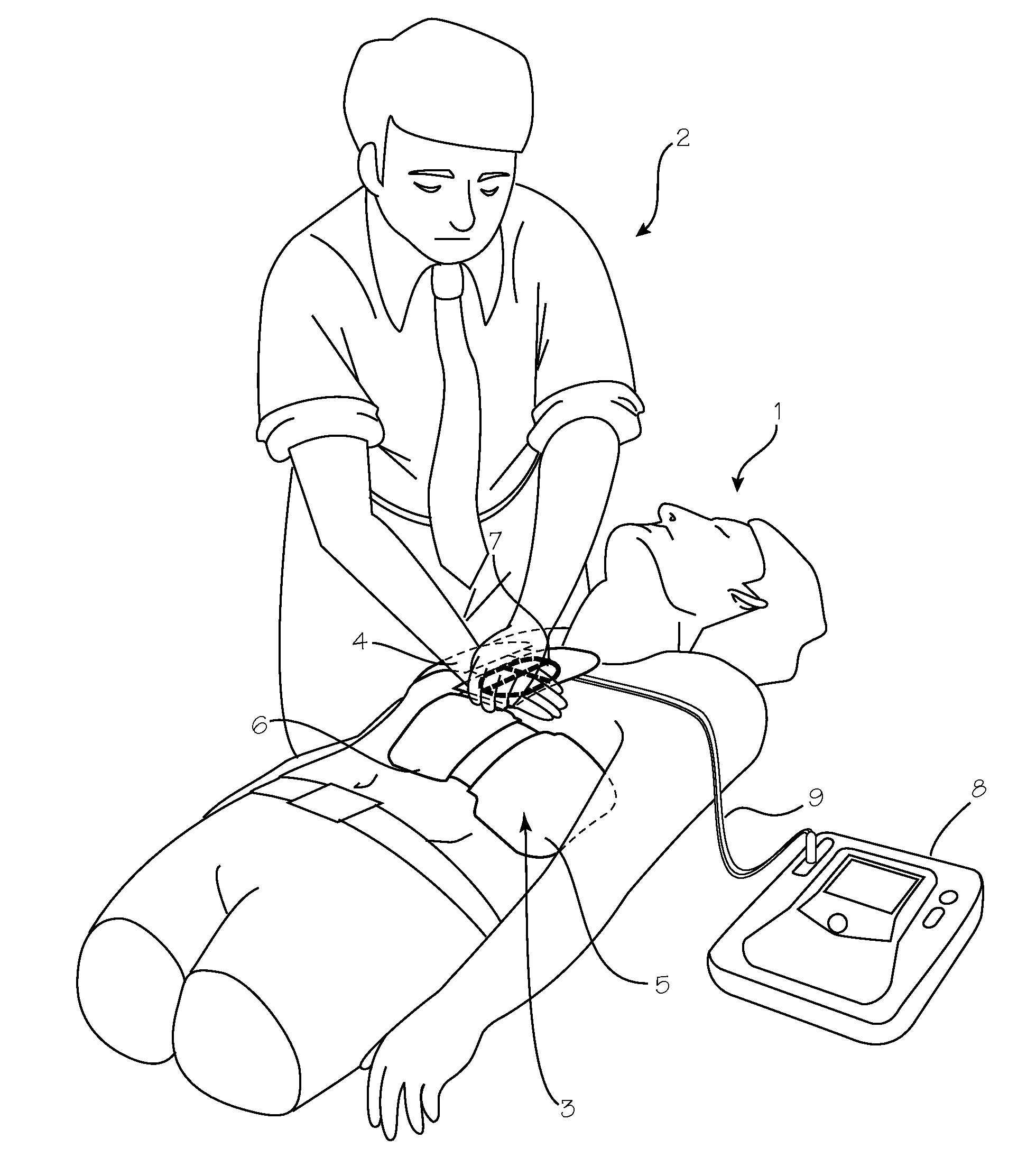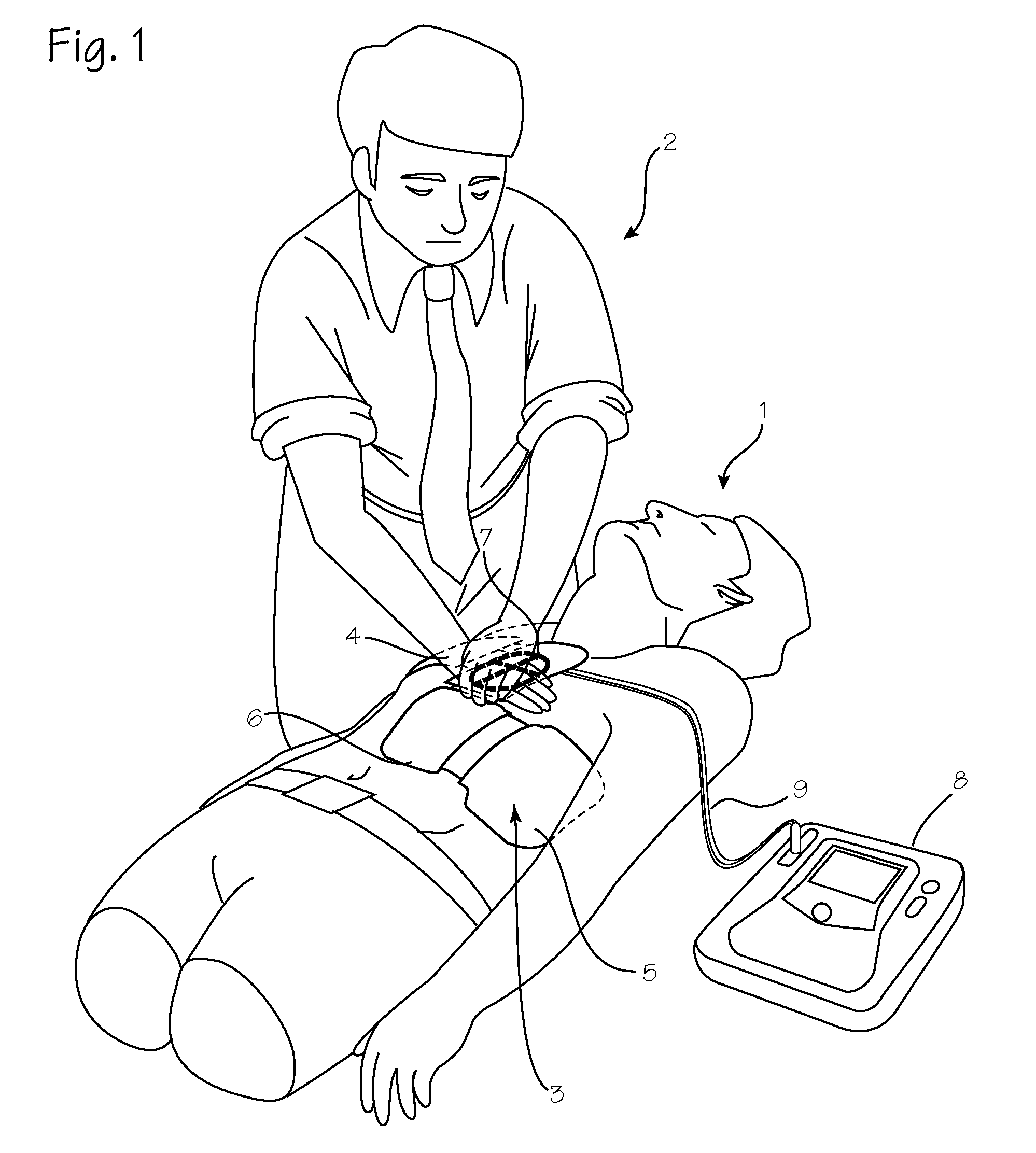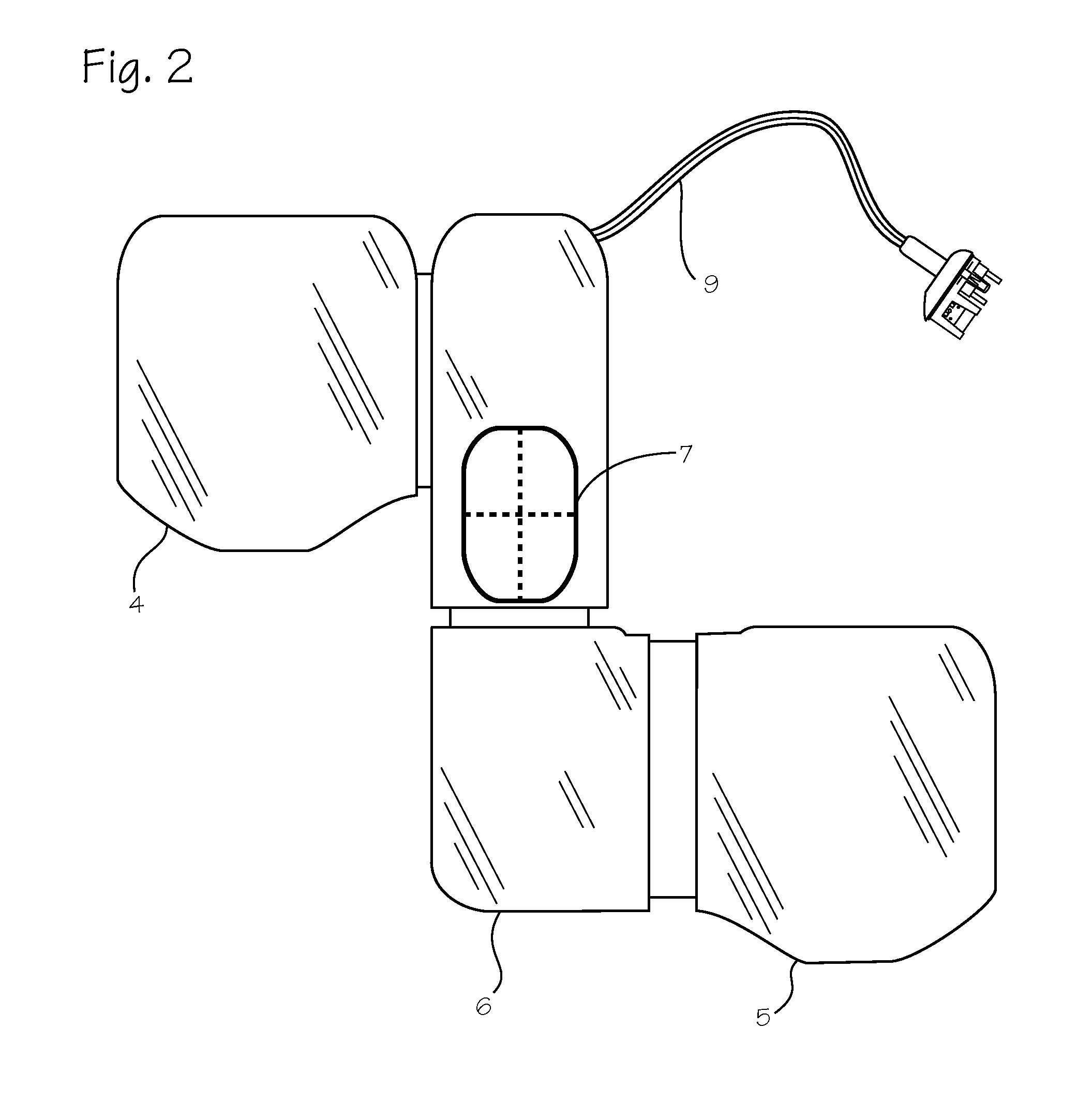Chest Compression Monitor with Rotational Sensing of Compressions for Discrimination of CPR Movement from Non-CPR Movement
a compression monitor and rotational sensing technology, applied in the field of cpr, can solve the problems that myklebust does not provide a means to measure the compression depth using an accelerometer alone, and myklebust does not account for some kinds of error in the measured value of chest compression depth, so as to improve the compression depth calculation and remove any compressive force
- Summary
- Abstract
- Description
- Claims
- Application Information
AI Technical Summary
Benefits of technology
Problems solved by technology
Method used
Image
Examples
Embodiment Construction
[0021]FIG. 1 illustrates the use of a chest compression monitor in use on a patient 1, with a rescuer 2 providing manual chest compressions. As part of the resuscitation effort, the rescuer has applied an ECG electrode assembly 3 on the patient's chest. This assembly includes a sternum electrode 4, an apex electrode 5, and sternal bridge 6. A chest compression monitor 7 is disposed within the sternal bridge, sandwiched between layers of foam that comprise the bridge. The bridge, along with the cross-hair indicia, serves as a template for proper placement of the chest compression monitor over the sternum of the victim which, together with the configuration of the bridge, ensures that the sternal and apex electrodes are properly placed (for patients of a wide variety of sizes). The electrode assembly is connected to a defibrillator 8 (through cable 9) which is fitted with a control system or systems capable of controlling (and programmed to control) ECG and defibrillating functions an...
PUM
 Login to View More
Login to View More Abstract
Description
Claims
Application Information
 Login to View More
Login to View More - R&D
- Intellectual Property
- Life Sciences
- Materials
- Tech Scout
- Unparalleled Data Quality
- Higher Quality Content
- 60% Fewer Hallucinations
Browse by: Latest US Patents, China's latest patents, Technical Efficacy Thesaurus, Application Domain, Technology Topic, Popular Technical Reports.
© 2025 PatSnap. All rights reserved.Legal|Privacy policy|Modern Slavery Act Transparency Statement|Sitemap|About US| Contact US: help@patsnap.com



